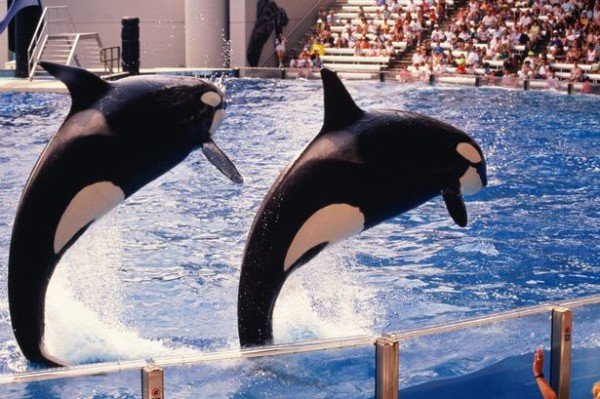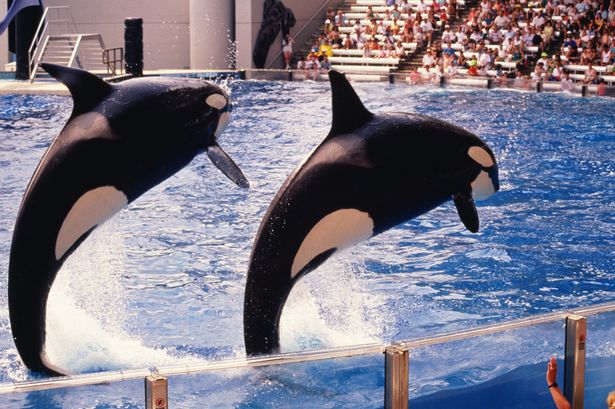SeaWorld has announced it is ending its controversial orca breeding program.
The theme park operator’s decision means the orca whales currently at the parks will be “the last generation”.
SeaWorld, which has 12 parks across the US, has faced heavy criticism over the alleged poor treatment of its captive orcas, also known as killer whales.
The company said the orcas would be likely to die if it released them into the wild.
“For as long as they live, the orcas at SeaWorld will stay in our parks,” the company said in a Los Angeles Times op-ed.
SeaWorld has previously announced that it will phase out live orca shows.

Dramatic displays by the whales are the centerpiece of three parks operated by SeaWorld, in California, Florida and Texas.
The Humane Society of the United States (HSUS) worked with SeaWorld on its new policies and said the announcement signaled “that the era of captive display of orcas will end”.
SeaWorld stopped capturing live marine mammals decades ago, with the majority of its 29 orcas having been born in captivity.
The treatment of SeaWorld’s orcas was highlighted in the 2013 documentary Blackfish, which focused on a series of violent incidents involving an orca called Tilikum.
The documentary also raised questions over the ethics of breeding programs and practices such as the separation of calves from their mothers.
Since Blackfish was released visitor numbers have fallen at SeaWorld’s main theme parks and its share price has halved.
SeaWorld described the documentary as inaccurate, misleading and exploitative and launched a multi-million dollar marketing campaign to rebuild its reputation.
Blackfish director Gabriela Cowperthwaite was quoted by HSUS as saying the decision to end orca breeding represented “truly meaningful change”.
https://www.youtube.com/watch?v=PdWCygkVZLA
